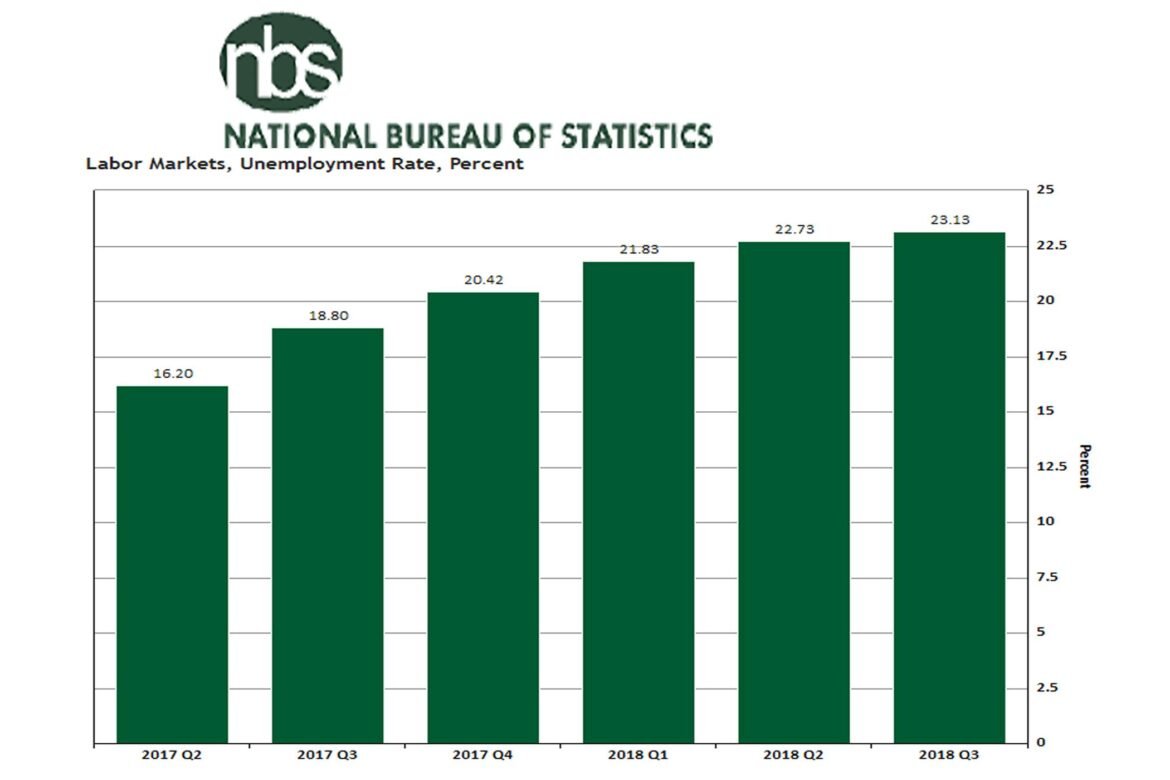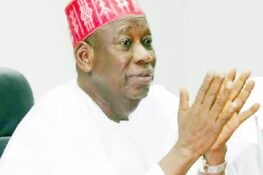Nigeria operates in various forms of darkness, and it is literally a statement of truth when you think about the remarkable darkness on many streets during the night.
However, the darkness that is most worrying is the absence of reliable national data system for planning and development.
For 50 years, Nigeria has repeatedly tried to count how many of us there are, and sunk billions of dollars without getting results.
Today, we still cannot be exactly sure if we have counted ourselves properly, resorting to projections and permutations.
Ours is a country where the government does not know every citizen and cannot directly and privately communicate with them.
Millions of Nigerians cannot be reached where they live, except through the mass media. In many homes, letters cannot be delivered.
In fact, millions of Nigerians live in neighborhoods where roads and other public infrastructure do not exist.
Vital registrations are inaccurate or incomplete. All we do is make assumptions. Decisions have been based on information that is not credible or timely, and metrics that are sometimes simply wrong
Since independence, we have not been able to accurately provide information on births and deaths, poverty and growth, trade and taxation, land use and environment, health, water resources, emigration, immigration, education and safety. We do not know how many Fulani herdsmen are Nigerians or foreigners.
Vital registrations are inaccurate or incomplete. All we do is make assumptions. Decisions have been based on information that is not credible or timely, and metrics that are sometimes simply wrong.
Since development cannot take off while groping in the darkness of information, planning has been bad, implementation even worse, and Nigeria could not experience a meaningful transformation.
This is the way Nigeria has operated through the third industrial revolution, the computer age, and we lost out.
Countries that were behind Nigeria in development in the 1960s, such as Singapore and South Korea, took advantage. They are today well developed and prosperous.
Nigeria is stuck with making decisions through outdated data-gathering mechanisms and end up with unreliable data in an age where information intelligence is the differentiator for development.
Nations are now in a race towards digital transformation. It is called the Fourth Industrial Revolution. This race is not just centered on data collection, but includes analytics, intelligence and governance.
It is a developing environment involving disruptive technologies and trends that are bound to change the way we live and work.
The revolution is delivering the Internet of Things, Artificial Intelligence, Robotics Automation, Machine Learning and Blockchain.
While these rapid changes take place, ours is still a primitive society, where the most basic data is hard to come by and broadband Internet is still a privilege.
Nigeria is stuck with making decisions through outdated data-gathering mechanisms and end up with unreliable data in an age where information intelligence is the differentiator for development
The Washington Post ran a story this year depicting the enormous challenge of running an online shopping business successfully in Nigeria and other African countries.
Among other problems, the most basic impediment, the Post wrote, is lack of street location data for customers.
It illustrated the kind of problems Nigeria will run into in the digital age as it tries to take shortcuts in the process of development.
Unless Nigeria invests in information science and its requirements, we will continue to grope in this darkness of ignorance and will be left out of opportunities being opened up by technology.
Why does it matter that we gather and intelligently use information about ourselves?
Data is becoming the engine of a modern and efficient society, where predictions can be made, precision can be achieved and development can be experienced.
It will transform the way government is run and drive innovation and the creation of wealth.
Data can now be applied to make use of itself in the form of artificial intelligence and automation.
Using it, government will know exactly how much each citizen is to pay as tax and if they have paid.
It can eliminate private consultants who collect billions of naira from tax revenue that could be spent on public projects.
It would help to manage public health better by providing information about diseases and spread, agriculture production will be aided by a prediction of seasonal changes in weather and river volumes, and tracking the efficiency of public services will become a walk in the park.
Data thinking must become the default national attitude if Nigeria will take the easiest path to becoming a modern society. We missed the last ship; we must prepare to jump on this one. Obsolescence is the obvious alternative
In business, artificial intelligence is already being employed for services such as driverless cars and by companies such as Uber, Google, Alibaba, Amazon and Microsoft for wide-ranging services.
Data thinking must become the default national attitude if Nigeria will take the easiest path to becoming a modern society. We missed the last ship; we must prepare to jump on this one. Obsolescence is the obvious alternative.
Our success will not happen without embracing information science far more seriously and with a sense of urgency.
While preparing for this article, I checked out the website of the National Bureau of Statistics, the custodian of national information.
Nothing can be more unworthy of Nigeria’s stride than their work. As with most governmental bodies, it was a spectacular display of an organization still operating in antiquity.
The website was filled with paper data, of minor importance in some cases, ranging from food prices, transport fare to kerosene price.
Its senior staff use Yahoo and Gmail email addresses, right on the public website. It gave an impression of human resources who lack training and are stuck in the traditional monitoring instruments.
When the leading body for managing national data is in such a deplorable state, no further evidence is required to prove we are a nation too unserious about the ongoing data revolution that everyone is excited about.
Nigerian businesses already appreciate the importance of data.
The biometric data collected by the banks enable them to make accurate business decisions and prevent fraud.
They know their customers and can make intelligent decisions. Nigerian phone companies have accumulated huge data with which they send marketing content.
The government must be run like a business too. You would not imagine a bank without a customer database, system of identification, account numbers and forecasting.
Yet, Nigeria is run without a proper citizen count, a national identification system, modern demographic and economic metrics or reliable forecasting. We cannot properly manage and control what we do not measure.
While some governmental bodies may appreciate and use some database in decision making, it needs to be institutionalized and formed into policy.
The divisive political construction and corruption behind national data gathering, as demonstrated by the national census, must stop.
We need to get our data right, and remove all forms of tribalism and bias from this completely scientific task.
The talent of our young people can be harnessed to develop artificial intelligence and robots, instead of representing a nation that is skilled in “Yahoo fraud” and other forms of con arts. But we must count ourselves properly to begin with
Nigeria also needs to invest in human capital so that we can create a population with the skills necessary for a changing world.
Many of the jobs that people do today will be wiped out in this generation and only those with advanced cognitive and social-behavioral skills will survive.
The government needs to invest in data science and develop a workforce that is ready for a future where machines and artificial intelligence will interplay with humans.
Driverless cars mean we will no longer need to hire motor vehicle drivers. Robotic automation means many factory jobs will disappear.
Even, some jobs done by professional lawyers, accountants and engineers are expected to fizzle out. Disruption is real. People get ready.
It is worrisome that we are not investing in any massive computational infrastructure, such as in broadband connectivity, datacentres and big data.
If we cannot collect and use reliable data, we cannot move forward. Work should begin now.
The explosion of information and automation, this fourth industrial revolution, is speeding so fast that one wonders if Nigeria will miss this ship too, in spite of opportunities as an emerging economy with an ambitious and exploding young population.
The talent of our young people can be harnessed to develop artificial intelligence and robots, instead of representing a nation that is skilled in “Yahoo fraud” and other forms of con arts.
But we must count ourselves properly to begin with.








